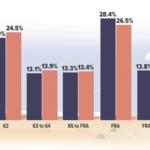A timeshare is a property with restricted usage rights that is commonly used for vacationing. Typically, timeshares are shared by many different individuals or families who use it at specific, non-conflicting times of the year.
Instead of planning a new vacation every year, some families opt to buy a timeshare. In fact, according to a 2014 study from the American Resort Development Association, 7.9 percent of American households own a timeshare. The appeal of timeshares comes with the consistency of visiting a city that a family enjoys, staying at a place that typically offers more amenities than a standard hotel, as well as taking the guesswork out of planning a vacation.
Different Types of Timeshares
Deeded
Deeded ownership means owning a share of the real estate outright. Unlike the other two types of timeshare ownership, this involves an actual stake in the equity of the property.
Right-to-Use
This type of ownership is when a customer buys the right to stay at the property for a block of time. This can be either any free week during a specified season or a specific week of the year. There is no direct equity owned in this scenario. When purchasing a right-to-use timeshare, the buyer typically can select a term for any number of years ranging from 10 to 99 depending on the timeshare broker.
Licensed
Unlike more specific usage options, some timeshares give you a set amount of points based on how much you pay per year. Based on how many points you have, you can then select from options in that same range. Points can be rolled over into the following year to use for a more lavish vacation, or points can be borrowed from the subsequent year to pay for an expensive vacation in the current year. Like right-to-use, this option does not involve direct ownership.
Maintenance costs
These are recurring costs—in addition to mortgage payments— that often range between $500 and $1,000 per year depending on the property. These fees will apply regardless of use and if you’ve paid off the timeshare entirely. You will have to pay maintenance fees every year and there is a strong likelihood of these increasing each year.
Usage
An important factor to consider when thinking about investing in a timeshare is how often you would use it and when. Due to maintenance costs and recurring payments, it may not make financial sense to invest in a timeshare if you are not committed to visiting every year.
Peer-to-Peer
If you already have ownership of a timeshare but would like to switch up your vacation options, you can arrange a peer-to-peer swap with another family that has the same week as you but at a different location. While this may not be directly sanctioned by the timeshare company, you can explore swap options through third-party websites.
Resale value
If you buy a deeded timeshare, you have the option of selling it because you own equity in the property. However, doing so will likely result in a loss of capital. In a 2015 article by US News & World Report, reselling a timeshare typically only yields 10 to 25 percent of the original amount paid. Potential investors should understand that – in addition to maintenance fees – losing capital on a timeshare is a strong possibility.










